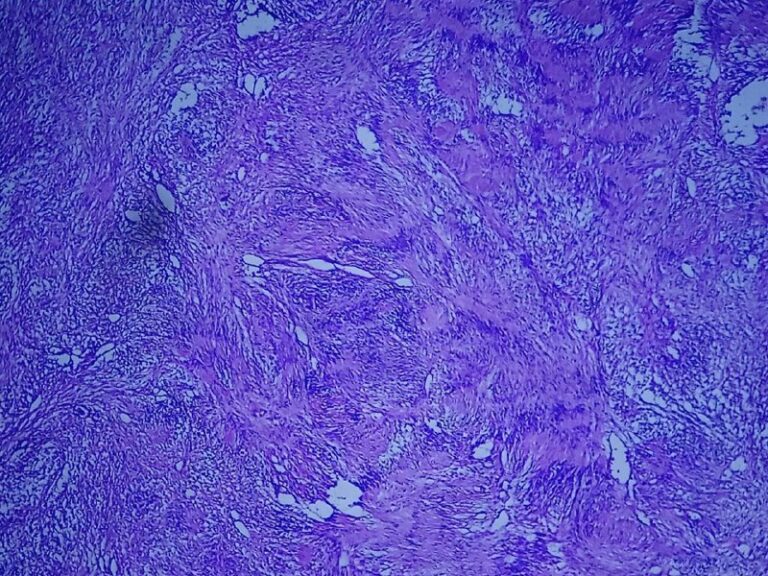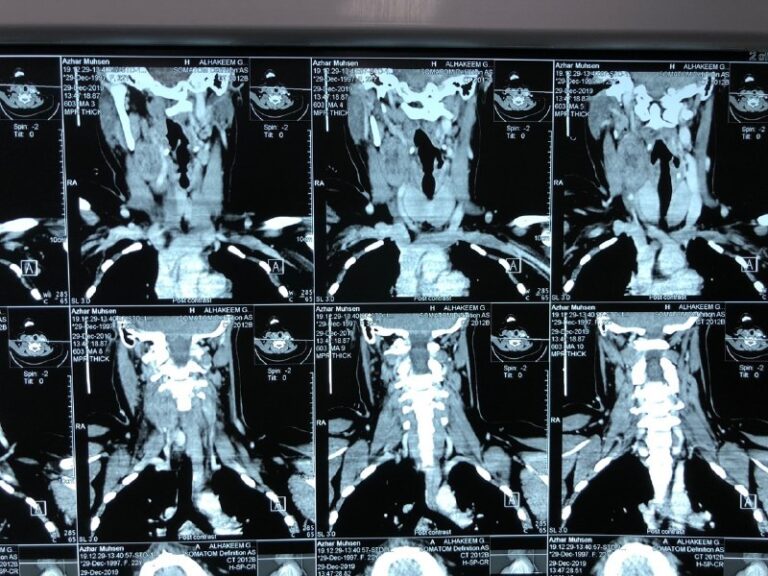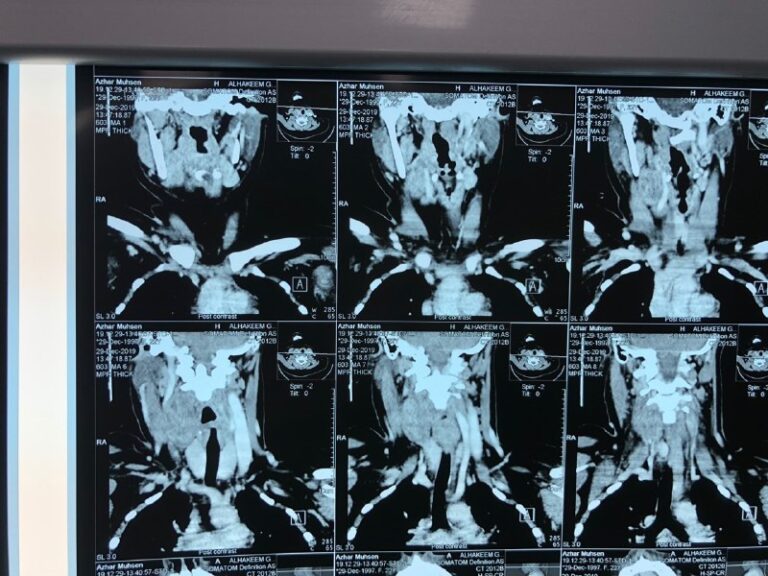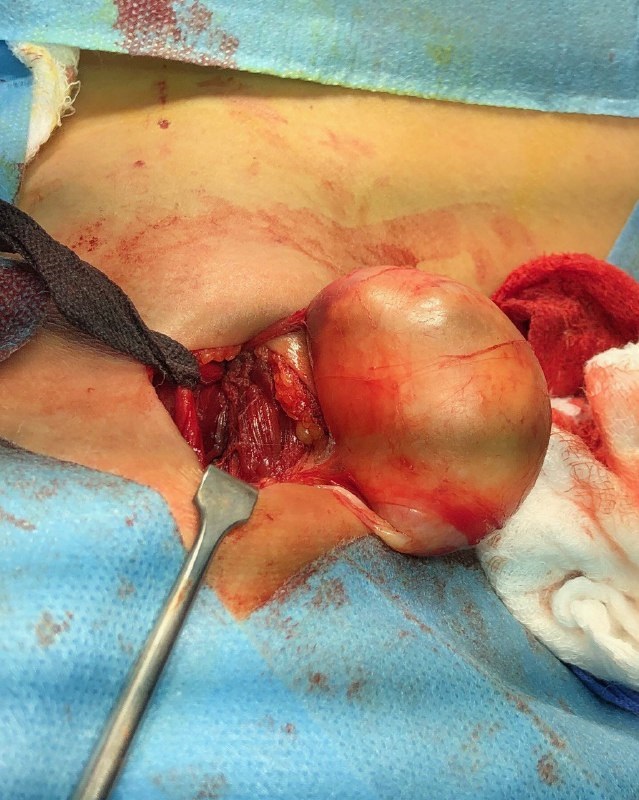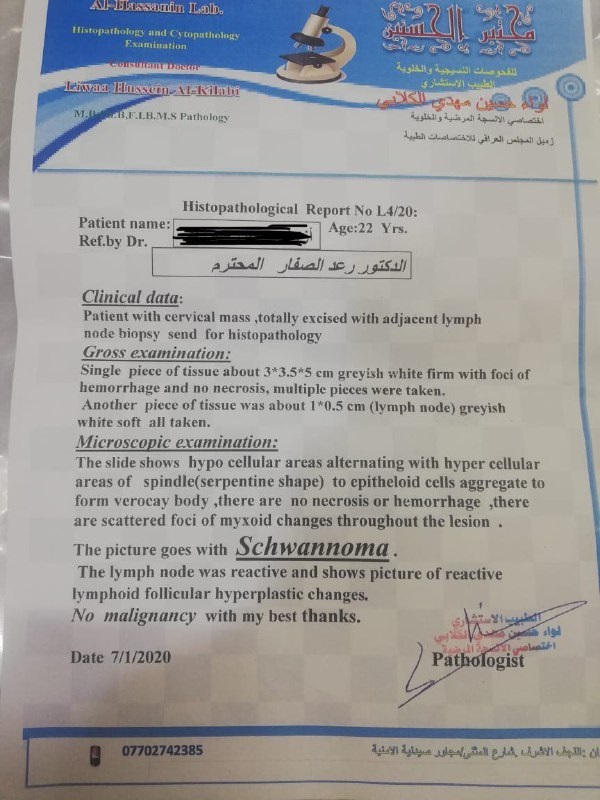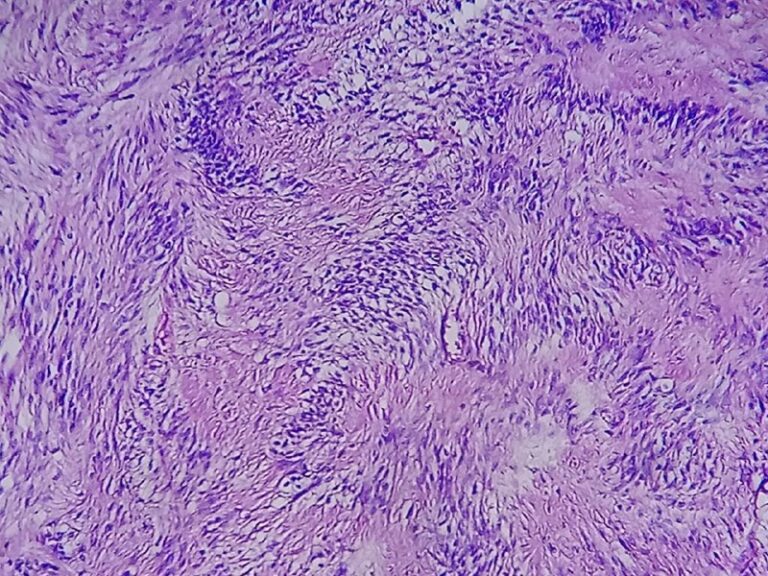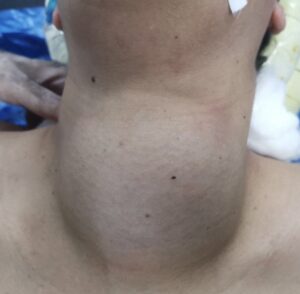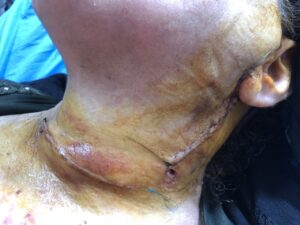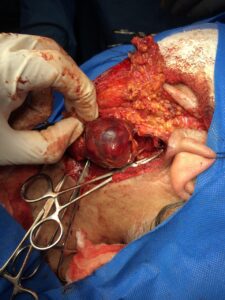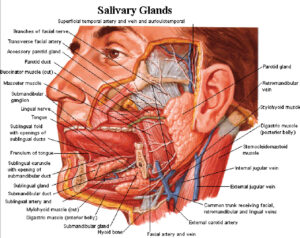Conventional extracapsular excision of cervical Schwannoma (Jan.2020)
Review of literature
Head and Neck Schwannomas: A Surgical Challenge—A Series of 5 Cases
Ishtyaque Ansari,1 Ashfaque Ansari,2 Arjun Antony Graison,2 Anuradha J. Patil,3 and Hitendra Joshi2
Abstract
Background. Schwannomas, also known as neurilemmomas, are benign peripheral nerve sheath tumors. They originate from any nerve covered with schwann cell sheath. Schwannomas constitute 25–45% of tumors of the head and neck. About 4% of head and neck schwannomas present as a sinonasal schwannoma. Brachial plexus schwannoma constitute only about 5% of schwannomas. Cervical vagal schwannomas constitute about 2–5% of neurogenic tumors.Methods. We present a case series of 5 patients of schwannomas, one arising from the maxillary branch of trigeminal nerve in the maxillary sinus, second arising from the brachial plexus, third arising from the cervical vagus, and two arising from cervical spinal nerves.
Result. Complete extracapsular excision of the tumors was achieved by microneurosurgical technique with preservation of nerve of origin in all except one.
Conclusion. Head and neck schwannoma though rare should be considered as a differential diagnosis of a unilateral slow growing mass in the head and neck region, particularly in an adult. Schwannomas are always a diagnostic dilemma as they are asymptomatic for long time, and histopathology is the gold standard for diagnosis. As a rule, treatment is surgical and dictated by the location of the tumor and nerve of origin. Due to its rarity, complex anatomical location and morbidity risk postexcision, they can pose a formidable challenge to surgeons. This study aims to describe the presentation, workup, surgical technique, and outcome.
